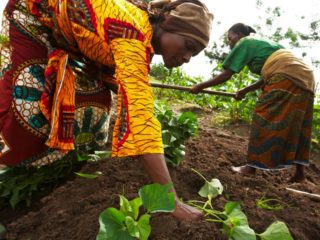Women farmers decry lack of access agric fund
Plateau State chapter of the Small-Scale
Women Farmers of Nigeria (SWOFON) has cried out over lack of access to various agricultural
intervention funds provided by the Federal Government to farmers across the
country.
Mrs. Mary Afan, Plateau State chapter
president of SWOFON, who disclosed this while addressing women farmers at a
seminar in Jos, the state capital, said it has been impossible for members to
access agriculture fund.
She said, “As women farmers, it
has been impossible to access the Federal Government agric fund. There is
hardly adequate information to women on how to access the fund and other
advantages provided by both state and federal governments.”
SWOFON is a coalition of
smallholder women farmers who are engaged in agricultural activities especially
farming and have formed cooperatives groups across the country. Women farmers
are not often involved in decision making and policy formulation at federal,
state and local government levels, which is why women are not carried along in
agric programmes in the country, the group lamented.
According to a statement released
by SWOFON at the end of the seminar, women constitute between 60 and 80 percent
of the agro labour force in the country, yet women farmers have no access to
credit facilities, inputs, training and crop insurance, among others.
“Women farmers are hardly
considered to be given allocation of fertilizer, pesticides, herbicides, feeds,
seeds and seedlings. No capital, poor awareness, poor skills and technical
support, poor excess to marker due to bad roads, and several other challenges.
“Our predicament as women farmers
originally began with access to land for farming, traditional, women in Nigeria
have no right to land, land belongs to the men and women remain tenants in our
own country. Even when we rent land to farm, women are so unsecured on the
farm. We are being raped on our farms by men, we are being killed on the farm,
this is more peculiar to states like Plateau where cattle grazers and farmers
are at loggerheads,” Afan said.




Comments
Post a Comment